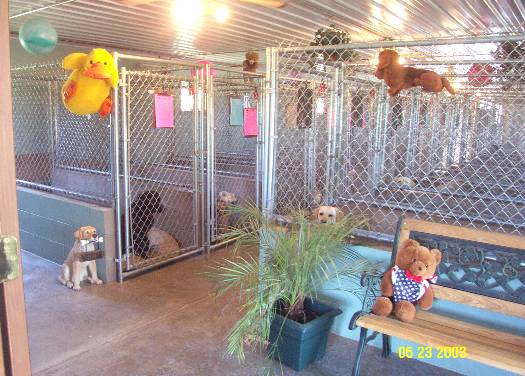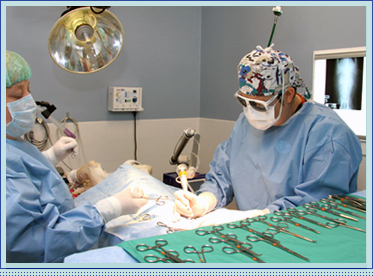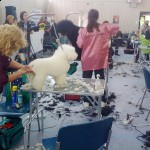Working with Pets – What Kinds of Jobs Can I get?
Working with pets, or working with animals in the pet industry is one of the most rewarding ways to develop a career. You can be an employeean industry that makes society happier and healthier.
Below is a list of some of the jobs you can get in the pet industry and what training you will need to do that job well. It is not an exhaustive list, but should get you started!
If you want to own a pet businesses there are some notes below also – if you are setting up a pet business “from scratch, a franchisee or a business owner. You will meet interesting people and their lovely pets and know you are supporting ” there is a separate section on this website for you as well.
People with disabilities are also welcomed in the industry, both as employees and as business owners.
A WARNING BEFORE YOU START PET JOB HUNTING!
While working with animals is incredibly rewarding, working in the pet industry is not about playing with pets. Jobs are sometimes dirty, smelly and messy. Pet work may include long hours of shift work to meet the needs of the animals and the business, including early starts and late finishing. Your team will need you to be on time and have a positive attitude.
Please consider taking one of the Pets Australia courses before you enter the industry. These include:
– Excellent Client Service Course. A study at home course on all aspects of managing the good, the bad and the evil of pet clients and their pets.
– Grooming Technician Course. This Certificate course can be “study at home” or “study in participating salons” and includes all the basic training you need to be able to operate as an assistant in a grooming salon or veterinary surgery, or operate all except the business aspects of mobile hydrobathing-type businesses.
– The Difficult Client Course. This short, three hour “in service” course is for those already with a job (not necessarily pet industry). Run on the business premises, this is a fun way to share “war stories” and develop strategies for managing difficult clients.
Unskilled – jobs while you are at school, or after leaving school, no formal training required
1. Retail assistant – pet shop
Pet shop jobs are covered by the retail award and have a reasonably high turnover so job vacancies do come up, but you will have to “put your best foot forward” because so many people want to work with animals. Some pet shops work with all pets, most pet shops work with fish and a few do not have any pets in them at all.
You should have a calm and mature manner and positive attitude, as well as being able to “start a conversation” to make customers feel comfortable, to actively help a client make a sale and to learn about pet ownership. Money and computer handling skills (tills, product stocktake, product management) or merchandising experience is also valuable. Having pets at home, good customer service skills, and good knowledge of pet products including pet foods will help you get that job.
You should apply in person with your CV at the local stores and make sure you “follow up” a week or so later. Many pet stores including “Chain” pet stores may also have an “employment” link on their websites.
2. Animal Attendant – boarding kennels and catteries/shelter worker
Some Boarding kennels and catteries require “Certificate 2” TAFE studies, but calm mature people often get jobs as Animal Attendants in boarding kennels and catteries, especially in peak periods, and sometimes in veterinary hospitals as well. Jobs may include cleaning out kennels and cat runs, feeding (and making sure the right food goes to the right pets), admitting pets to the facility, giving tablets and flea treatments, bringing pets to the owners, taking pets to the exercise yards, bathing and drying pets.
While this is a very physical and sometimes dirty job – you will be exposed to pet hair, faeces, food and water daily – BUT you do get to spend a little time talking to each pet and sometimes exercising them as  well. The work team will usually be pretty close knit and dedicated to getting the job done efficiently.
well. The work team will usually be pretty close knit and dedicated to getting the job done efficiently.
You should apply in person with your CV at each kennel or cattery where you would like to be considered for work. Your CV should emphasise your pet care skills and include references that prove your hard working nature. Sometimes offering yourself for work experience can help you “get in the door”.
3. Salon Assistant – Dog & Cat Grooming Salons
Grooming salons increasingly require job seekers with training – Grooming Technicians or qualified Groomers – but there may be places available for handy, mature people with a good work attitude as untrained assistants.
The work may involve admitting pets for grooming, operating computers, cleaning ears, eyes, and trimming nails, as well as brushing pets out before the bath, bathing and drying after the bath. This pet job is very intimate – you develop a great relationship with each pet and with their owners – BUT it is wet, and sometimes smelly, hot, noisy and pet hair is everywhere. The grooming salon team is generally close knit and works very hard to tight time schedules so you will need to fit that culture.
relationship with each pet and with their owners – BUT it is wet, and sometimes smelly, hot, noisy and pet hair is everywhere. The grooming salon team is generally close knit and works very hard to tight time schedules so you will need to fit that culture.
You should apply in person with your CV at each salon where you would like to be considered for work. Your CV should emphasise your pet care skills and should include references that prove your hard working nature.
4. Pet Services Roles
 Businesses like Dog Walking, Pet Minding, pet feeding, Doggy Daycare etc may be looking for assistance during peak periods, particularly school holidays and weekends. Check your local businesses by applying in person.
Businesses like Dog Walking, Pet Minding, pet feeding, Doggy Daycare etc may be looking for assistance during peak periods, particularly school holidays and weekends. Check your local businesses by applying in person.
Roles with Some training required and reasonable level skills.
1. Grooming Technician/Grooming Cadetship
This requires the Pets Australia Grooming Technician Course, or at least 2 years of the Grooming Cadetship course or Certificate 3 of the TAFE Animal Management Course. This allows the person to work efficiently as a Grooming Technician in a grooming salon, admitting pets, brushing, bathing, cleaning ears and eyes, clipping nails, and finishing off with some scissoring and clipping.
This is a really skill short area, and there are many jobs available for Grooming Technician standard (and above) skilled workers with some experience.
2. Supervisor/Office Work In Boarding Kennels And Catteries
These roles usually require at least Certificate 2 in Animal Management from TAFE (or equivalent) or for office work at least some formal training in bookkeeping or office management (generally through TAFE). Roles range from “all rounder” – admission, office management, staff management, rostering, pet handling, feeding, medication and cleaning etc. through to specialist roles in bookkeeping, front office management or IT management.
3. Pet Retail Manager
Usually requiring at least Certificate 2 in Retail (TAFE) or equivalent these roles include stock management, staff management, rostering, computer and money management, animal welfare and pet management. Roles can range from less then $1M turnover businesses to more than $5M.
4. Pet Training
 While many trainers are self taught, or taught “on the job”, these pet jobs generally require training from private operators and sometimes also Certificate 2 or 3 from TAFE (Animal Handling/Animal Management). Training includes animal behaviour, learning systems, commands, motivation as well as legal responsibilities, animal ownership and other elements depending on the course.
While many trainers are self taught, or taught “on the job”, these pet jobs generally require training from private operators and sometimes also Certificate 2 or 3 from TAFE (Animal Handling/Animal Management). Training includes animal behaviour, learning systems, commands, motivation as well as legal responsibilities, animal ownership and other elements depending on the course.
5. Pet Breeder
While many pet breeders have no formal qualifications, most have attended informal private courses in genetics, Codes of Practice, pet regulation and responsibilities, breed standards, show grooming etc. Some modern breeders also have TAFE Certificate 2 or 3 (Animal Management/Animal Care).
6. Council Animal Ranger
Rangers and Animal Management Officers are generally TAFE qualified Certificate 2 or 3 in Animal Management, some may also have diplomas or degrees in Public Administration, Animal Technican or Animal Care. They also have “on the job training in legislation surrounding pets, animal welfare, domestic animal management and other areas. These roles are an interesting mix of public policy, enforcement, animal welfare and animal care.
Roles with Considerable training requirements
1. Veterinary Nursing
Veterinary Nursing requiresTAFE Certificate 3 or 4 (Animal Management/Animal Care) and most veterinary nurses also have on-the-job training and additional courses in areas like intensive care, paediatrics, surgery, as well as practice management and supervision/HR. Many veterinary nurses also have some training in pet grooming. You should contact TAFE or local veterinary surgeries about opportunities (these studies are best undertaken while you are in a vet nursing/assistant role) or the Veterinary Nurses Association of Australia.
2. Management/Office Work In Boarding Kennels And Catteries/Shelter management
Most of these animal based jobs roles require training in business (TAFE or Diploma) and/or training in animal management as above. Roles include staff and office management, management of volunteers, responsibility for Occupational Health & Safety, responsibility for animal welfare, responsibility to adhere to all Codes of practice, and may also include payroll and bookkeeping as well as statutory reporting.
3. Groomer/Professional Groomer
This is taught through private grooming schools or TAFE Certificate 3 or 4 (Animal Management) with experience based training usually included as part of the training. Many Groomers train for more than 4 years before reaching competition level and training includes hygiene, Occupational Health and Safety, animal welfare, scissoring, clipping, pet & show grooming, dyeing, styling, skin health, coat types and finishing. Privately operated short courses are available, but it generally takes some time to master the techniques to Groomer standard.
4. High level pet training/Pet training for movies
Courses are through TAFE or private schools and then generally include on-the-job additional training and “apprenticeship” with an experienced trainer. Training also includes business skills. Jobs in this area are not common, but the good operators generally do well, particularly if they are natural marketers.
5. Animal Therapist/Myotherapist
Similar to a physiotherapist and taking pets through rehabilitation to wellness, these roles generally require a high degree of training from an appropriate school. Jobs can also include in the racing industry, especially for greyhounds and horses. Talk to the natural therapies schools, or the Physiotherapists Association for more details.
6. Animal Chiropractor
While these roles have traditionally been with racing animals (greyhouds and horses) there are increasing roles for qualified animal chiropractors for pets. Currently the only course is through RMIT University in Melbourne and only veterinarians, chiropractors or osteopaths are eligible for training.
7. Veterinarian
 A five or six year university degree with an ATAR score in the high 90’s, this course includes pathology, anatomy, physiology, medicine, surgery, public health, pharmacology(study of drugs) , dentistry, radiology, lab work (clinical pathology), exercise physiology, paediatrics, anaesthetics, diagnosis, ethics, legal and more. It is on par with medicine and dentistry in terms of study and expertise, but alas, often carries low salaries and long working hours after graduation. This course is better for those who respect (as compared to just “love” ) animals, get excellent marks and are prepared to work really hard. There is a continuing education requirement for life in this profession and the opportunity to specialise in areas you are passionate about .
A five or six year university degree with an ATAR score in the high 90’s, this course includes pathology, anatomy, physiology, medicine, surgery, public health, pharmacology(study of drugs) , dentistry, radiology, lab work (clinical pathology), exercise physiology, paediatrics, anaesthetics, diagnosis, ethics, legal and more. It is on par with medicine and dentistry in terms of study and expertise, but alas, often carries low salaries and long working hours after graduation. This course is better for those who respect (as compared to just “love” ) animals, get excellent marks and are prepared to work really hard. There is a continuing education requirement for life in this profession and the opportunity to specialise in areas you are passionate about .
What about owning a pet business?
Owning a pet business does not guarantee you success, but it is generally not difficult to set up your own pet business adn many who own pet businesses love the hard working lifestyle and the closeness to pets. You will have to compete with those who may be better trained, may have lower cost structures and those who “pretend” to have your skills and experience when they do not. (eg not all those who advertise themselves as groomers are actually Groomers).
A checklist for setting up a business can be found in a separate note by clicking HERE. If you are buying a business, make sure you get a fair valuation of the business and the contract includes both a suitable handover period and caveats on the previous owner going into competition within a certain time.
Make sure that you are familiar with the legal requirements for running a business – BAS returns, Staff records, income tax, withholding tax, annual returns, ASIC (or Fair Trading) requirements. It is also worth knowing (or “buying”) strategic planning expertise.
You should allow up to 15 hours per week on administration. Many business owners buy a business and then hate the administration or find that they are making less money per hour than their employees. If this is the case consider remaining (or becoming) a highly qualified employee.
GOT A COMMENT ON THIS NOTE? HAVE YOU FOUND ADDITIONAL JOBS THAT SHOULD BE INCLUDED? DO YOU WANT TO SUGGEST OTHER NOTES, OR IMPROVE THIS ONE?
Just email to petsaustralia@petsaustralia.org. Pets Australia listens to the needs of its members and acts on them whenever possible.
Not a member? Join now by clicking HERE. When you join Pets Australia you are showing your commitment to responsible pet ownership and pet education in Australia


